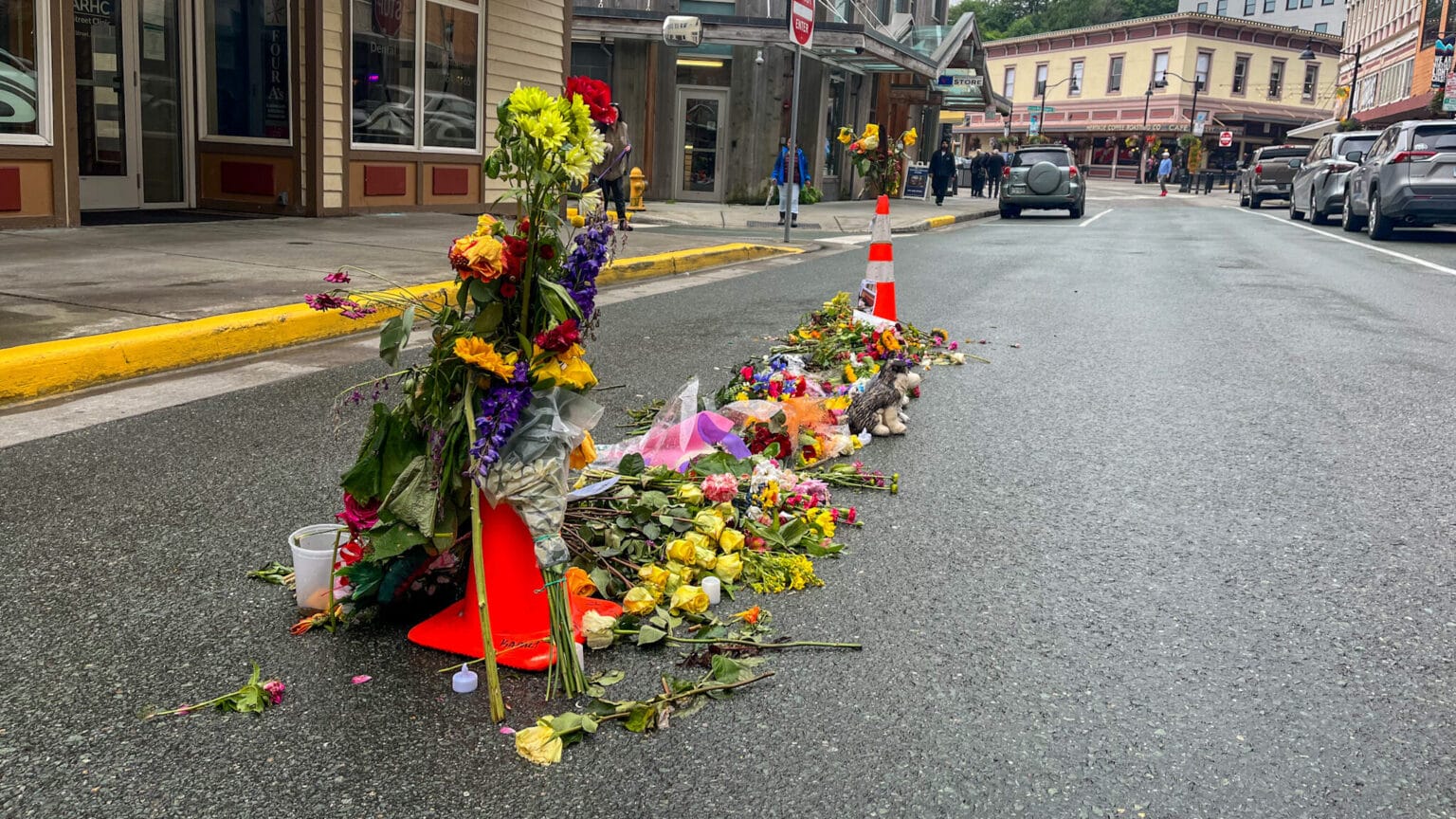People who witnessed Monday’s deadly police shooting in downtown Juneau are carrying a lot of emotions — anger, confusion and grief, to name a few. A local mental health care provider has compiled resources to help residents deal with the trauma.
William Sanders said he’s been struggling with his anger since Steven Kissack was shot and killed during a standoff with police officers.
“I’m trying to keep my mind occupied,” he said. “Sometimes that’s the only way I can sleep. I keep busy till I collapse.”
Sanders said he and Kissack were friends. He said Kissack was someone who helped people navigate being on the streets and always shared his food.
Sanders doesn’t have stable housing, and he said witnessing a violent death like this makes living on the streets even harder. In the chaos of the shooting, he said he and another witness feared for their own safety.
“We all checked ourselves. We didn’t know if we were hit,” he said.
Matthew Mulhern was working at Devil’s Club Brewery when police confronted Kissack. He was standing in a window that looks out on Front St. when the shooting started.
“I didn’t ever expect it to turn into what it did,” he said. “That was not a possibility in my mind, that I was going to watch someone be shot.”
He said he’s also been feeling a lot of anger. And it wasn’t until the next day that he realized how close he was to being hurt himself. He found a bullet hole in the wall where he had been standing, right before the gunfire.
“The thing that is terrifying to me is that I cannot be safe at work, that I cannot be safe inside my building,” Mulhern said. “In what realm is that okay?”
Mulhern was able to get an appointment with his therapist only a few hours after the shooting. And, he said, the community of people who witnessed the shooting while working downtown have been supporting each other through the fallout.
“I am really lucky that I have a bit of a support network, and I still don’t feel like it’s enough to be perfectly honest,” he said.
Meryl Connelly-Chew is a program coordinator for the local chapter of the National Alliance on Mental Illness, or NAMI.
They said anger like Sander’s and Mulhern’s is normal when people witness traumatic events. And so are feelings of sadness, guilt and fear.
“Really just by witnessing — even for many of us, watching the videos — or everyone in town is kind of talking about this right now. Talking about something so traumatic and violent can have an effect on us,” Connelly-Chew said.
Connelly-Chew said NAMI has put together resources on their website for people who have witnessed a traumatic event. People can also use support hotlines like 9-8-8 or reach out to NAMI to seek therapists who specialize in trauma.
They said spaces like the vigil for Kissack earlier this week, or memorials that have been set up downtown, are important for people to be able to grieve together.
“I think it’s really important to know that there is not one person in my personal or professional life in the past week that hasn’t been affected by this in some way,” they said. “I think the entire community is experiencing the effects of this.”
Connelly-Chew said people should give each other as much compassion and kindness in the wake of Kissack’s death as they can. And that’s especially true when people interact with people who are living outside in Juneau.
“These are folks who are grieving someone they loved very much, someone who felt like their family. They are wanting to share stories, they are wanting to take care of each other, share food, do all of the things that any of us do when we’re experiencing loss,” they said.
And people living outside have a harder time accessing mental health care. But community support goes a long way.
“Stop in, say hello to people at the memorial site,” Connelly-Chew said. “Share a hug or a story and just show up in that grief the way that you would for someone in your neighborhood.”

